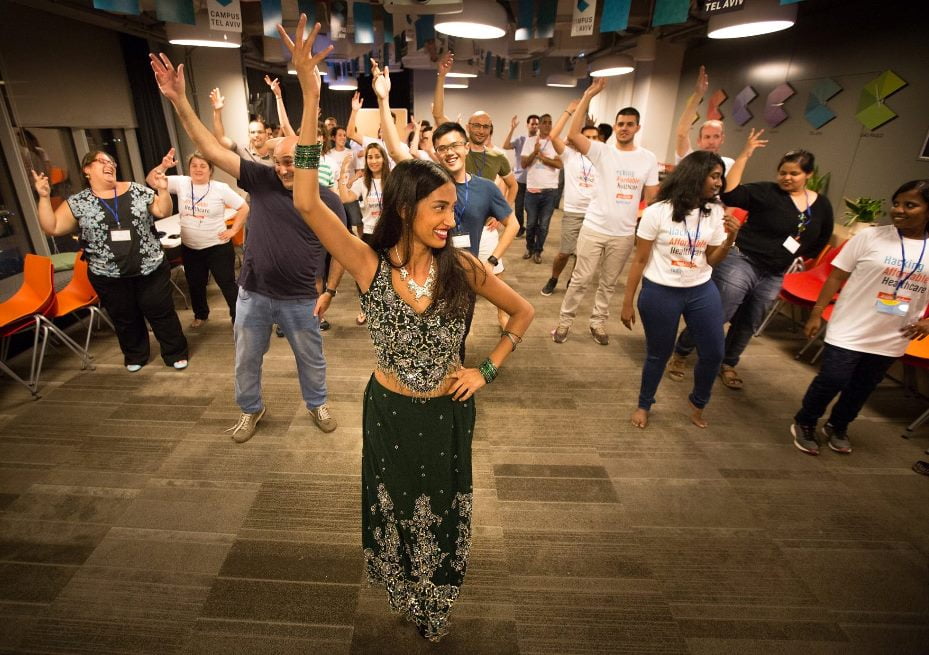This article was first published by The Times of Israel and was re-posted with permission.
Amid Bollywood music and dancing, mouthwatering curries and masalas, more than 600 innovators, entrepreneurs and healthcare professionals in four cities, in Israel and India, took part in a hackathon aimed at resolving health challenges for India’s poor.
SEE ALSO: In Face Of Water Crisis, Indian Minister Praises Israeli Technologies: “Israel Is My Guru”
Some 100 teams in Tel Aviv, Mumbai, Hyderabad and Bangalore spent 36 hours together, face-to-face and online, and came up with ideas including a toothbrush that detects anemia, mobile phone applications to monitor the food intake of infants, and a smart pillbox to remind patients to take their tuberculosis medication.
The India Israel Affordable Healthcare Hackathon, which ran for three days in the four cities and ended recently, was organized by the Pears Program for Global Innovation, which is run by the Tel Aviv University. The program is a partner of OLAM, an organization promoting global Jewish service and international development.
The aim of the hackathon was to expose Israeli technology to the challenges of developing markets and turn the attention of Israeli entrepreneurs to the potential that Africa and India hold for their products. There are over 1,000 startups in the healthcare sector in Israel but most of them target the US and European markets.
“The best teams of the hackathon will be invited to join the Pears Challenge year-long fellowship program for outstanding Israeli innovators who want to develop technologies to address the health care needs of poor people in India,” Aliza Belman Inbal, director of the Pears Program, said by phone. “The hackathon was an amazing first step in this journey. We hope to create a pipeline of commercial ventures that deal with these problems.” The Indian winning teams will get placed at a parallel program in India.
SEE ALSO: Israeli Pesticide Company That Fights Pests With Bumble Bees Now Launches In India
The teams had to tackle pressing health problems by finding, among other challenges: an anemia diagnostic test for young girls; a technological solution to monitor food and milk intake among infants; screening and diagnosis solutions for hearing impairment; real-time monitoring devices for pregnant women in remote areas; a way to manage the side effects of chemotherapy in remote areas; improved access to funding for cancer treatments and a technology driven-solution to give psychological counseling for cancer patients by connecting them to doctors and counselors.
To read the full article, click here.
Photos and video: Pears Program
Related posts

Israeli Medical Technologies That Could Change The World

Rehabilitation Nation: Israeli Innovation On Road To Healing






Facebook comments